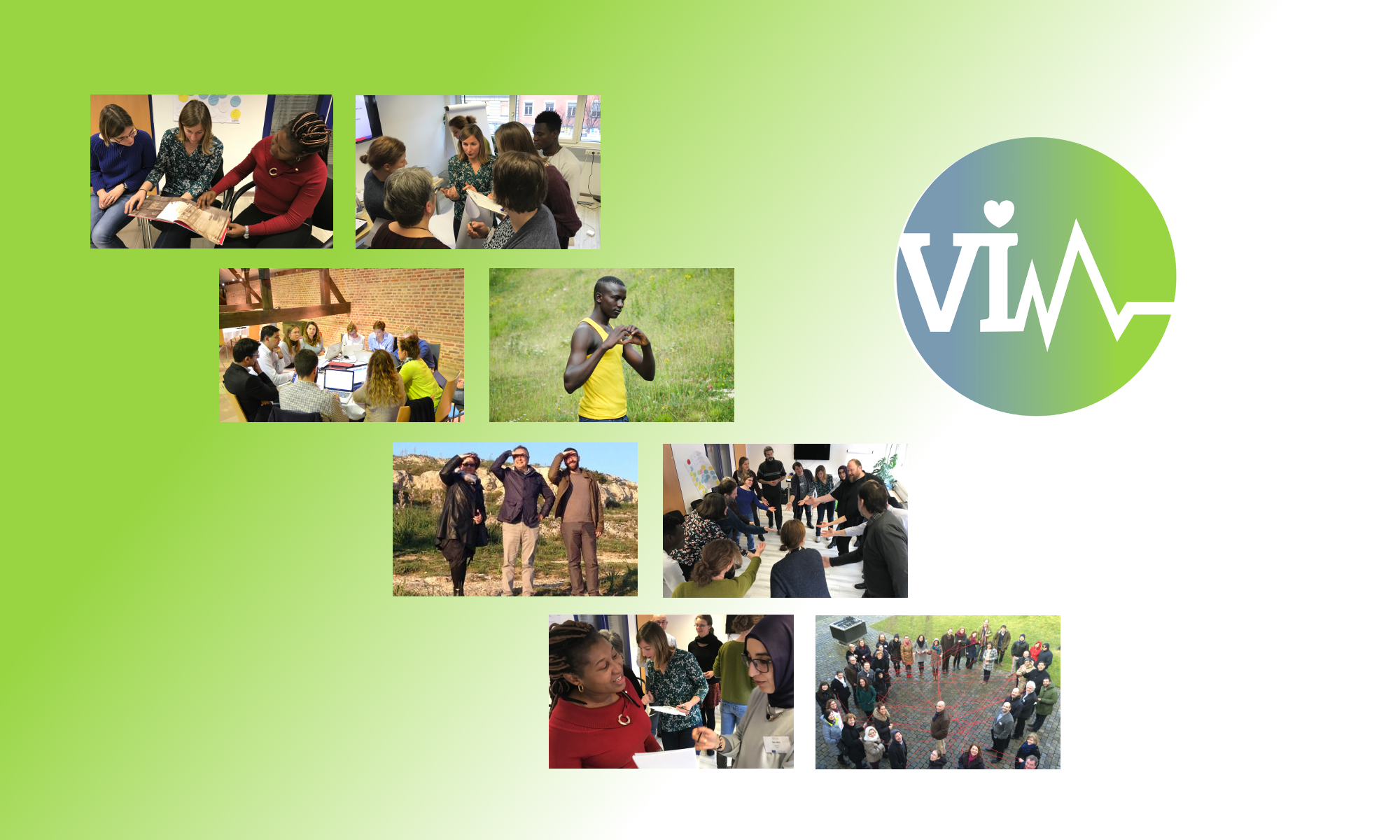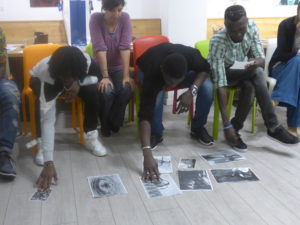 The VIM team is happy to announce that the VIM online hub (educational resources) is available now in English. It offers training units with activities on different health topics as well as further resources and interesting links to deepen the knowledge on specific issues related to health.
The VIM team is happy to announce that the VIM online hub (educational resources) is available now in English. It offers training units with activities on different health topics as well as further resources and interesting links to deepen the knowledge on specific issues related to health.
The Hub is right now being translated and will be available in all partner languages within the next few weeks.
VIM training offer
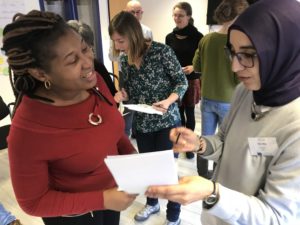 The VIM training offers small training units called simply “activities” as these shall be interactive and shall involve migrants and refugees in all kind of playful, discovery oriented and holistic activities. These are clustered into the following main categories:
The VIM training offers small training units called simply “activities” as these shall be interactive and shall involve migrants and refugees in all kind of playful, discovery oriented and holistic activities. These are clustered into the following main categories:
- Different conceptions of health, illness and cure based on culture and religion
- Mental well-being
- Physical well-being
- Access to the new health services – obstacles and problems
- Sex/sexuality, pregnancy and childbirth
- Communication
Each of the six categories provides approx. ten different activities – these vary in terms of their duration, group of learners, equipment needed. They all have in common that they can be implemented in all kind of adult education courses by educators that are not health experts.
Partner meet in Vienna
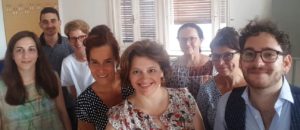 The VIM partners met in Vienna on 05./06.06.2018 and worked on the development of the health related training units and activities. These will be provided on the VIM Hub for download and can be used by European adult educators that wish to raise certain health related topics in an innovative and interactive way on their courses addressing migrants and refugees.
The VIM partners met in Vienna on 05./06.06.2018 and worked on the development of the health related training units and activities. These will be provided on the VIM Hub for download and can be used by European adult educators that wish to raise certain health related topics in an innovative and interactive way on their courses addressing migrants and refugees.
The training units will be available for piloting in autumn 2018.
Good practice examples
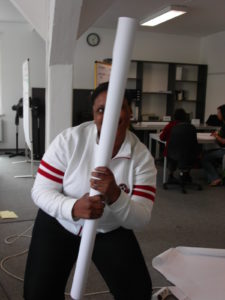
In addition to the interviews the VIM partners also searched for good practice examples on existing health education projects and resources for migrants and other disadvantaged groups.
We felt that we could learn something from these examples that could be transferable to the VIM learning units and activities that we are to develop in the next months. Specific points of interests that we were looking for were:
Results of interviews
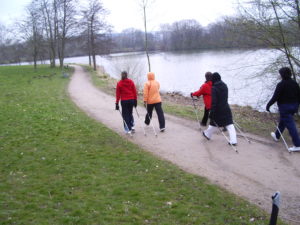 The VIM partners have carried out 61 interviews with educational and social professionals in the six partner countries. The aim was to define the learning needs of migrant adults in terms of most relevant health education topics. These will be taken as the basis for developing small learning units and activities that can be embedded in training offers addressing refugees and migrants. Continue reading “Results of interviews”
The VIM partners have carried out 61 interviews with educational and social professionals in the six partner countries. The aim was to define the learning needs of migrant adults in terms of most relevant health education topics. These will be taken as the basis for developing small learning units and activities that can be embedded in training offers addressing refugees and migrants. Continue reading “Results of interviews”
Interviews with educational and social professionals
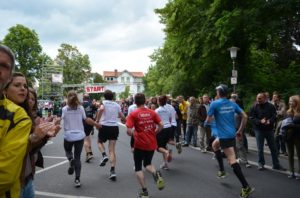 Each partner is currently scheduling qualitative interviews with educational and social professionals. The aim is to find out the learning needs of migrant adults in terms of health and healthy lifestyle, most relevant health education topics and suitable methodological approaches that are likely to succeed with hard-to-reach target groups.
Each partner is currently scheduling qualitative interviews with educational and social professionals. The aim is to find out the learning needs of migrant adults in terms of health and healthy lifestyle, most relevant health education topics and suitable methodological approaches that are likely to succeed with hard-to-reach target groups.
If you are interested to get involved and give an interview, please address one of the VIM partners.
Kick-off meeting in Göttingen
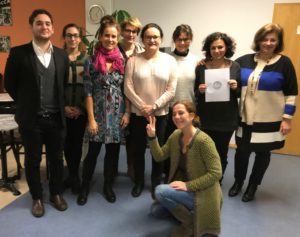 On 11./12. December 2017 the VIM partners met in Göttingen for the kick-off meeting. The main purpose of the meeting was to get to know to each other and to plan in detail the first project activities.
On 11./12. December 2017 the VIM partners met in Göttingen for the kick-off meeting. The main purpose of the meeting was to get to know to each other and to plan in detail the first project activities.
The partners discussed in detail the approach of the stocktaking and needs analysis phase and brainstormed possible topics for the micro-learning units that will be developed. Apart from healthy lifestyle related topics also topics such as home sickness, depression, intercultural reflection about body and health as well as trustbuilding in the healthcare system of the host country were listed. Currently the long list of possible topics is being clustered and will be further consolidated by means of expert interviews in the partner countries.
VIM – What does it stand for?
 VIM stands for Vitality Interventions for Migrants and builds on the experience gained in “Health Box”, a very successful LLP-funded project (www.healthbox.eu). Health Box developed micro-learning units on crucial healthy-lifestyle topics that were integrated in other training contexts (e.g. labour market training). This approach shall now be transferred to the target group of refugees and migrants.
VIM stands for Vitality Interventions for Migrants and builds on the experience gained in “Health Box”, a very successful LLP-funded project (www.healthbox.eu). Health Box developed micro-learning units on crucial healthy-lifestyle topics that were integrated in other training contexts (e.g. labour market training). This approach shall now be transferred to the target group of refugees and migrants.
Staying in good health, adopting healthy life styles and being informed about the health system of the host country as well as having confidence to make use of it are pre-requisites of successful integration of refugees and newly arrived migrants.
